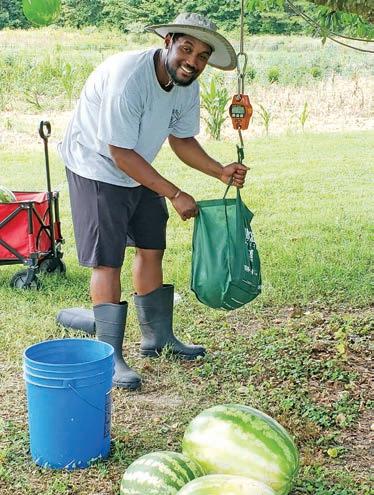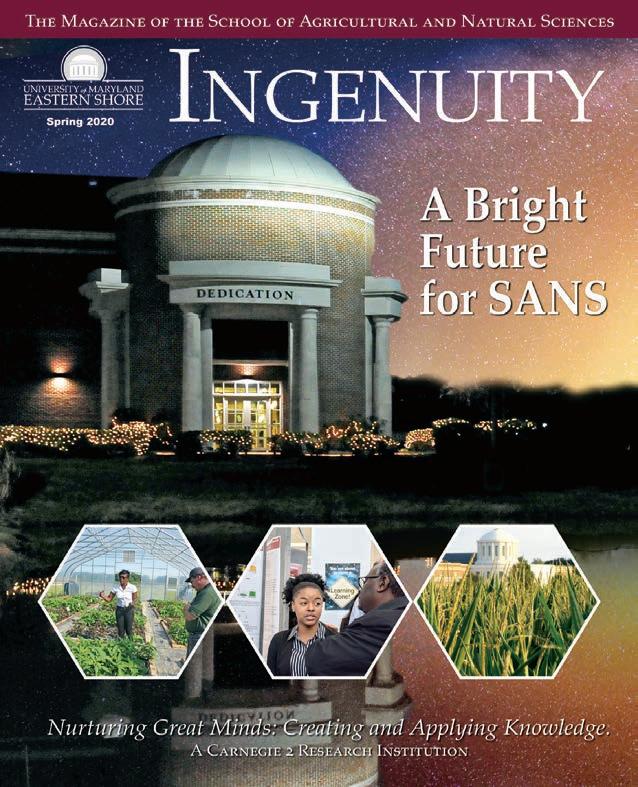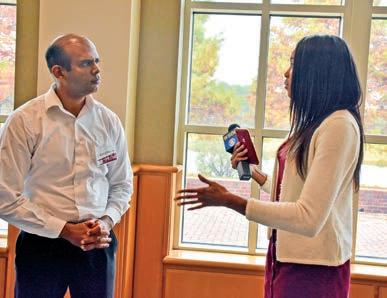
2 minute read
A Message from Dean Moses T. Kairo
It is always with much joy that I take the opportunity to pen this dean’s letter for our magazine. 2019 was a very exciting year for SANS with significant progress pertaining to the various teaching, extension, and research endeavors and many new initiatives, some of which are covered in this magazine. For me, leading the wonderful and hardworking faculty and staff of SANS is a tremendous joy, honor, and privilege. The opportunity to work on the many critical issues addressed in the School with such a talented team is very gratifying.
SANS priorities are driven by our stakeholders given that our primary purpose is to serve the citizens of Maryland and the nation. In an environment where resources are limited, it is therefore critical that our priorities are tied to the most pressing challenges. The development of a strong workforce – especially in the areas of agriculture, science, and technology – underpins our core academic programs while on the research and extension front, our programming remains focused on four critical themes:
• agriculture and food with a focus on food and nutritional security; • natural resources and environmental sustainability; • human health and development; and • products to market. Within these four themes, activities are focused on the development of integrated solutions to issues around food systems, water, energy, community wellbeing, youth development, and economic development among others. In our endeavors, we are cognizant of some of the overarching disruptive forces such as those imposed by population growth and climate.
As we implement our 2020 plans of work, we remain positively focused and are committed to continue working closely with our many partners and stakeholders in addressing all that concerns our communities, our nation, and our world.
Moses T. Kairo, Ph.D., DIC Dean, School of Agricultural and Natural Sciences
Research Briefs

Recent survey studies indicate that less than 10 percent of the crops produced on Delmarva are organic. One of the key reasons for this low level of organic fruit and vegetable production is the lack of information on organically-based insect pest management. Dr. Simon Zebelo and his co-workers intend to expand organic vegetable production in the Delmarva region by assisting growers in adopting integrated organic pest management practices.
This summer the team developed acceptable tactics involving the use of trap crops for managing the cucumber beetle that Dr. Simon Zebelo
Zebelo Researches Effect of Trap Crops on Insect Pests
attacks watermelon. By definition, trap crops are the preferred hosts of the target insect pests. And through preliminary study, they learned that cucumber beetles are attracted by summer squash plants.
For the study, the summer squash was planted along the perimeter of the test watermelon plots at UMES’ Agricultural Experiment Station and on the fields of Delmarva farmers at the beginning of the spring season. It has been demonstrated that when watermelon plots are bordered with summer squash, there is a reduced infestation of cucumber beetles and an increased yield in watermelon. These
4 UNIVERSITY of MARYLAND EASTERN SHORE Grad student Brandon Jackson weighing healthy watermelons.

findings are exciting, and they can be easily transferable to similar crops like cucumber, cantaloupe, and pumpkin.
This work is funded by the USDA/NIFA Capacity Building Grant (CBG) Program, Grant No. 2018-38821-27749, from the USDA National Institute of Food and Agriculture.










